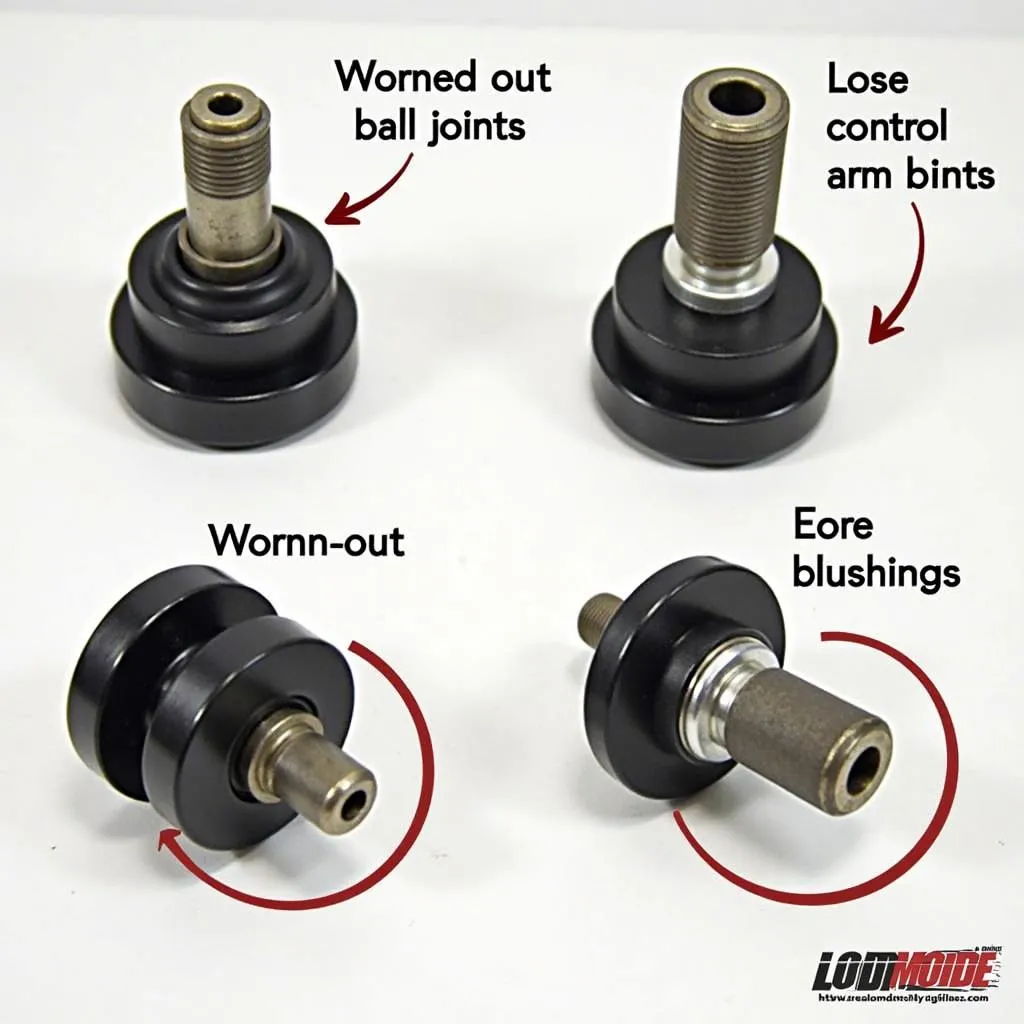Imagine this: you’re running errands, park your car, and when you shift into reverse, BAM! A loud clunk noise makes you jump. Sounds familiar? This unsettling experience can happen to any car owner, from a vintage Ford Mustang cruising down Route 66 to a Tesla Model S navigating the streets of New York City.
What Does a Clunk Noise When Shifting to Reverse Mean?
This isn’t just an annoying sound; it often signals an issue with your car’s drivetrain. Let’s break it down:
- Mechanic’s Perspective: A seasoned mechanic like Robert Davies from Chicago, known for his work on European cars, often sees this issue. “Many times,” he says, “it points to worn-out transmission mounts, loose suspension components, or even problems within the differential.”
- Technical Aspect: Your car’s transmission, axles, and differential work together to transfer power from the engine to the wheels, allowing you to move forward and backward. A clunking noise indicates a disruption in this smooth power transfer.
- Financial Implications: Ignoring a clunking noise can be costly. A minor issue like a loose bolt, if left unattended, can escalate into a major transmission repair, setting you back thousands of dollars.
Diagnosing the Dreaded Clunk
There are several reasons why your car makes that jarring noise when shifting into reverse. Here are some of the most common culprits:
1. Worn-out Transmission Mounts
These mounts act as cushions between the transmission and the car’s chassis, absorbing vibrations and keeping everything in place. Over time, they wear down, causing excessive movement and that dreaded clunking sound.
 Worn Transmission Mount
Worn Transmission Mount
2. Loose Suspension Components
Control arms, ball joints, and sway bar links are just a few parts of your suspension system that can become loose. When shifting gears, especially into reverse, these loose components can shift abruptly, resulting in a clunk.
 Loose Suspension Components
Loose Suspension Components
3. Differential Problems
The differential allows your wheels to rotate at different speeds when turning. If there’s an issue with the gears or bearings inside the differential, you might hear a clunk when changing gears, particularly when shifting into reverse.
4. U-Joint Issues
Universal joints (U-joints) connect the driveshaft to the transmission and differential. Worn-out U-joints can create a noticeable clunk, especially during gear changes that involve a change in drive direction.
5. CV Axle Problems
Constant velocity (CV) axles transfer power to the front wheels in front-wheel drive and all-wheel drive vehicles. Worn-out CV joints can cause a clunking noise when accelerating or decelerating, and sometimes even when shifting gears.
What To Do When You Hear the Clunk
Don’t panic! While a clunking noise is a cause for concern, it doesn’t always mean a catastrophic failure. Here’s what you should do:
- Listen Carefully: Pay attention to when you hear the clunk. Is it only when shifting into reverse, or does it happen in other gears too? Does it occur when accelerating, decelerating, or going over bumps?
- Inspect Your Car: If you’re mechanically inclined, take a look under your car for any visibly loose or damaged components.
- Consult a Mechanic: The best course of action is to have a qualified mechanic, like those at our partner shops specializing in European car diagnostics, inspect your vehicle. They have the tools and expertise to pinpoint the source of the clunk and recommend the necessary repairs.
Similar Issues and Questions
- Clicking noise when turning
- Grinding noise when shifting gears
- Whining noise from the transmission
These sounds could indicate different problems within your car’s drivetrain. It’s crucial to address any unusual noises promptly to prevent further damage and costly repairs.
Need Help with Your Car’s Clunking Noise?
We’re here to help! Contact us on WhatsApp at +84767531508 for expert advice and assistance with diagnostic tools. Our team of automotive specialists is available 24/7 to answer your questions and connect you with trusted mechanics. Don’t let a clunking noise ruin your drive – get the help you need today!
